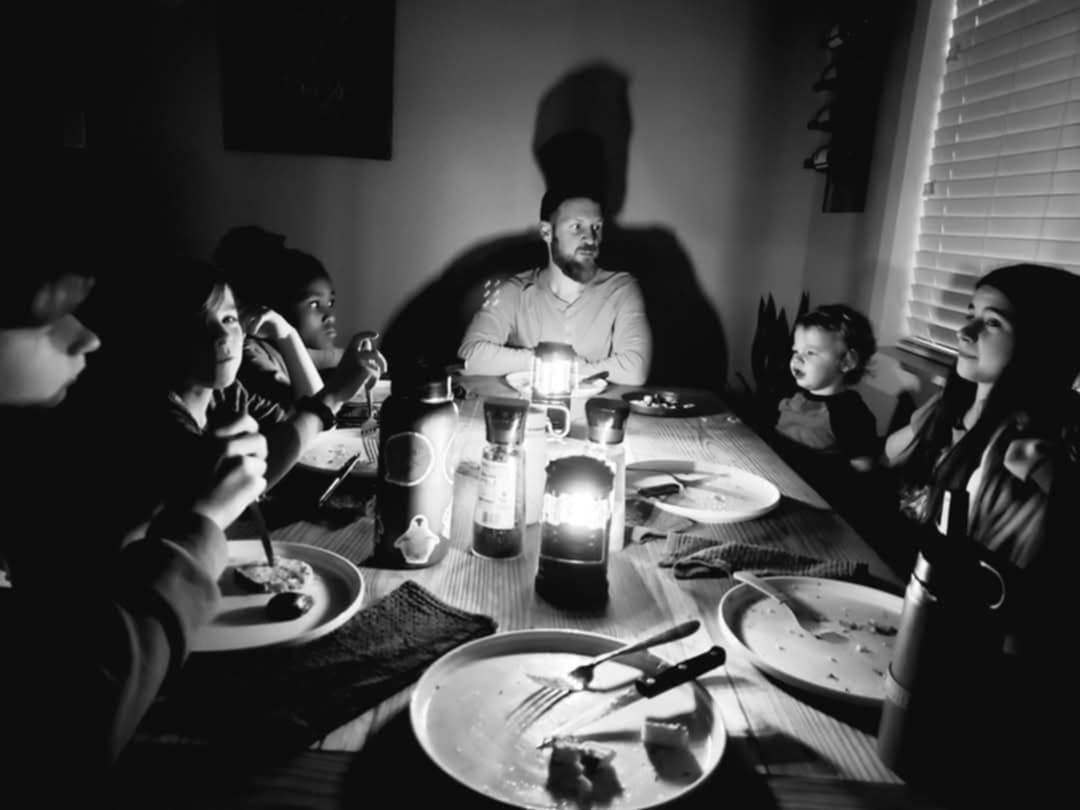I’ll just say it. Many who want to follow Jesus are so woefully misinformed about what Scripture teaches that they fall prey to “leaders” with extraordinarily stupid ideas.
Sometimes these bad ideas are related to salvation, which is deadly serious. Often the issues are less critical, but the teaching is still dead wrong.
A fairly prominent member of the “dead wrong teaching” club is this idea, generally posted on social media by individuals who seem to be pretty proud of their “superior” knowledge:
“Our family does not celebrate (Easter, Christmas, Halloween) because it is pagan. It is a sin to celebrate pagan holidays, especially since we are supposed to be celebrating the biblical feast days, and keeping the Sabbath.”
This is commonly the sentiment of someone involved in the Hebrew Roots movement, which falsely teaches that Christians today are required to follow Old Testament law including keeping all the biblical feast days, Sabbath, etc. This problematic movement is a topic for another day, but I mention it here because it comes up so often in relation to celebrating holidays.
Having already tackled why Halloween and Christmas are not “pagan,” I’ve personally experienced the wrath of the Hebrew Roots folks for daring to suggest that it’s not a sin to let your kids trick-or-treat, or decorate a Christmas tree. I’ve been told I’m not a Christian, and I’m going to hell (more than once). #sadtimes
But let’s turn our attention to the most important day on the Christian calendar, since it celebrates the events that are the bedrock of our faith: Easter is also not a pagan holiday.
When you actually research the history of Easter, the ties to possible pagan practices are flimsy at best. Many of them center around the word “Easter” being derived from the names of some pagan goddesses. As this article explains, that’s not the likely origin of the word. Likewise, the fact that there were pagan celebrations in the springtime does not make celebrating Easter pagan either. As the referenced article humorously notes:
A married couple who celebrate their wedding anniversary on October 31 should not be accused of appropriating Halloween.
A longer and very thoughtful rebuttal to “Easter is pagan” argument can be found here, and another great historical take is here.
Ultimately, even modern-day pagans understand that Easter is the celebration of the resurrection of Jesus Christ. You can call it Resurrection Sunday if you prefer — nothing wrong with that! But that is what we are celebrating.
And what could possibly be a better thing to celebrate?
Now, we all recognize how holidays are commercialized. In non-Christian world, Easter is about egg hunts, Easter baskets, bunnies, chicks, candy (why is every holiday about candy?!), and a lavish Easter brunch with a big juicy Easter ham. I searched for “Easter images” and you don’t really get a lot of crosses and empty tombs right off, but you do get a lot of stuff like this:
And yet, there is nothing wrong with eggs, bunnies, chicks, or any of these cultural customs. Don’t let anyone shame you or try to tell you they’re wrong to enjoy.
But obviously that is not the most important thing we’re celebrating. So let’s make sure our focus is correct.
A rich Easter celebration
Whether or not you do egg hunts and chocolate bunnies, what’s often called Holy Week or Passion Week (the week before Easter) is a wonderful time for your family to absorb (or return to) the true story of that week — reading, discussing, and meditating on these passages:
Palm Sunday — the Triumphal Entry
The prophecy — read Zechariah 9:9
The fulfillment — read Matthew 21:1-11 and/or Mark 11:1-11 and/or Luke 19:28-40 and/or John 12:12-19
Holy Monday — Jesus clears the temple
Read Matthew 21:12-13 and/or Mark 11:15-19 and/or Luke 19:45-48
Holy Tuesday — Jesus returns to Jerusalem
Our Savior had a lot to say during this day’s activities. Read one or more of these longer passages today:
Holy Wednesday — Judas plots to betray Jesus
Read Matthew 26:14-16 and/or Mark 14:10-11 and/or Luke 22:1-6
Maundy Thursday — the Last Supper (the last Passover)
What is “Maundy”? It comes from the Latin word “mandatum” which meaning mandate or command, and it references one of the greatest commandments in Scripture. Maundy Thursday commemorates the Last Supper, Jesus’ amazing example of washing the disciples’ feet, and his “new” commandment that they love one another as He had loved them.
If you have an opportunity for your family to participate in a Passover meal, this can be a powerful lesson to help your children understand the significance of the ultimate Passover Lamb. Because of that Lamb, that year’s Passover, Christ’s last on earth, was the last Passover, period. Jesus is our Passover now.
Read Matthew 26:17-35 and/or Mark 14:12-31 and/or Luke 22:7-38
Read John 13-17. In these five magnificent chapters, John records the Savior’s careful messaging to his disciples before His crucifixion. I suggest reading slowly and mindfully because these words are incredibly rich.
Good Friday
When I was younger I wondered why we called it Good Friday. After all, it seemed like the worst Friday, or the worst day, in history.
But for human beings, it is very, very good. Sobering, to be sure. But this is the day we commemorate God sacrificing Himself so that we could have a path back to Him.
How much better could it get than that?
Reflecting on that sacrifice is utterly soul-enriching.
You might consider fasting on Good Friday, and prayerfully meditating on the following passages:
Many churches offer a Good Friday service. Go.
And if you have kids at home, that Good Friday service can kick off an impactful Easter weekend, as it does for a former neighbor of mine, Kate Watson.
When Kate, her husband James and their children return from their Good Friday service, they gather all their flashlights and lanterns and candles and even headlamps — which they will need until Easter Sunday morning.
Because from Friday night to Sunday morning, the Watson house is dark. No overhead lights or table lamps (they even tape the light switches so nobody forgets and flips it on). They also tightly close the blinds and curtains so no daylight can penetrate.
Kate explains more here:
We go without our lights, to the degree that we can, from Friday evening (when Christ's body was placed in the tomb), until Sunday morning (when the women found the tomb empty) to remind us that for those hours so many years ago, the world was without its Light. The Light of the World was entombed, of His own volition, separated from the Love of the Father, experiencing a darkness and death that we will never have to endure.
If you have been in my home, you know it's all open curtains, lamps everywhere, just as much light as I can get. The darkness of this exercise feels oppressive every year, yet so deeply significant. When we turn the lights back on we FEEL the freedom and joy and light of Christ's resurrection! We also see all that we missed in the darkness — our messes, like our sins, are so easily ignored in the darkness. But, goodness, when we live in the light we see so much more.
Above, the Watsons eat by lantern light. I deeply regret that I never heard of this idea until my kids were long gone. What a vivid exercise to bring home the most profound of biblical truths!
“Again Jesus spoke to them, saying, ‘I am the light of the world. Whoever follows me will not walk in darkness, but will have the light of life.’” — John 8:12
But that’s not to say the kids don’t think it’s fun, too:
Holy Saturday — the Great Sabbath
The day between Good Friday and Resurrection Day is a day of waiting and contemplation (and a day of darkness, if you’ve decided to try the idea above).
That Sabbath, the week that Christ died, was the last time God required Sabbath keeping, because Jesus is our Sabbath rest now, as this article clearly explains. There’s a lot of misunderstanding on this issue.
For anyone who believes Christians must keep the Sabbath, quite a few scriptures say otherwise, including Colossians 2:16-17 and Romans 14:5. More on that here. (Also, to be clear, Sunday was never the Sabbath, but the early Christians began meeting that day to commemorate Christ’s resurrection on the first day of the week.)
If you’re going to do Easter baskets, Saturday would be the best day to have your kids fill their own Easter baskets with rocks! Look at this wonderful idea here, or a variation here. I can’t think of a better reason to do Easter baskets!
Saturday night is also a great time to make Resurrection cookies with your children — read all about it here.
Easter Sunday — Resurrection Day!
Yes, turn on all the lights! Christ is risen, He is risen indeed!
Enjoy those Easter baskets!
Go to church (go early, parking will be a bear).
Revel in a family-and-friends egg hunt before your celebratory Easter brunch or dinner.
Go to sleep marveling over the truth that one day, we will see this glorious Savior face to face — this Jesus who paid for each and every one of our sins so that we could live in His holy, perfect presence forever.
Blessed Easter to all!
BONUS
As I was putting this post together, Marci Ferrell, aka The Thankful Homemaker, released an incredible resource — called Resources to Help Your Family Celebrate a Christ-Focused Easter. It includes Easter books, music, audio/videos, recipes, ideas for celebrating, and a free, comprehensive Easter planning guide. Check that out!







I love this, Diane! So much good stuff!
I too wish we would have known the idea about turning out the lights.